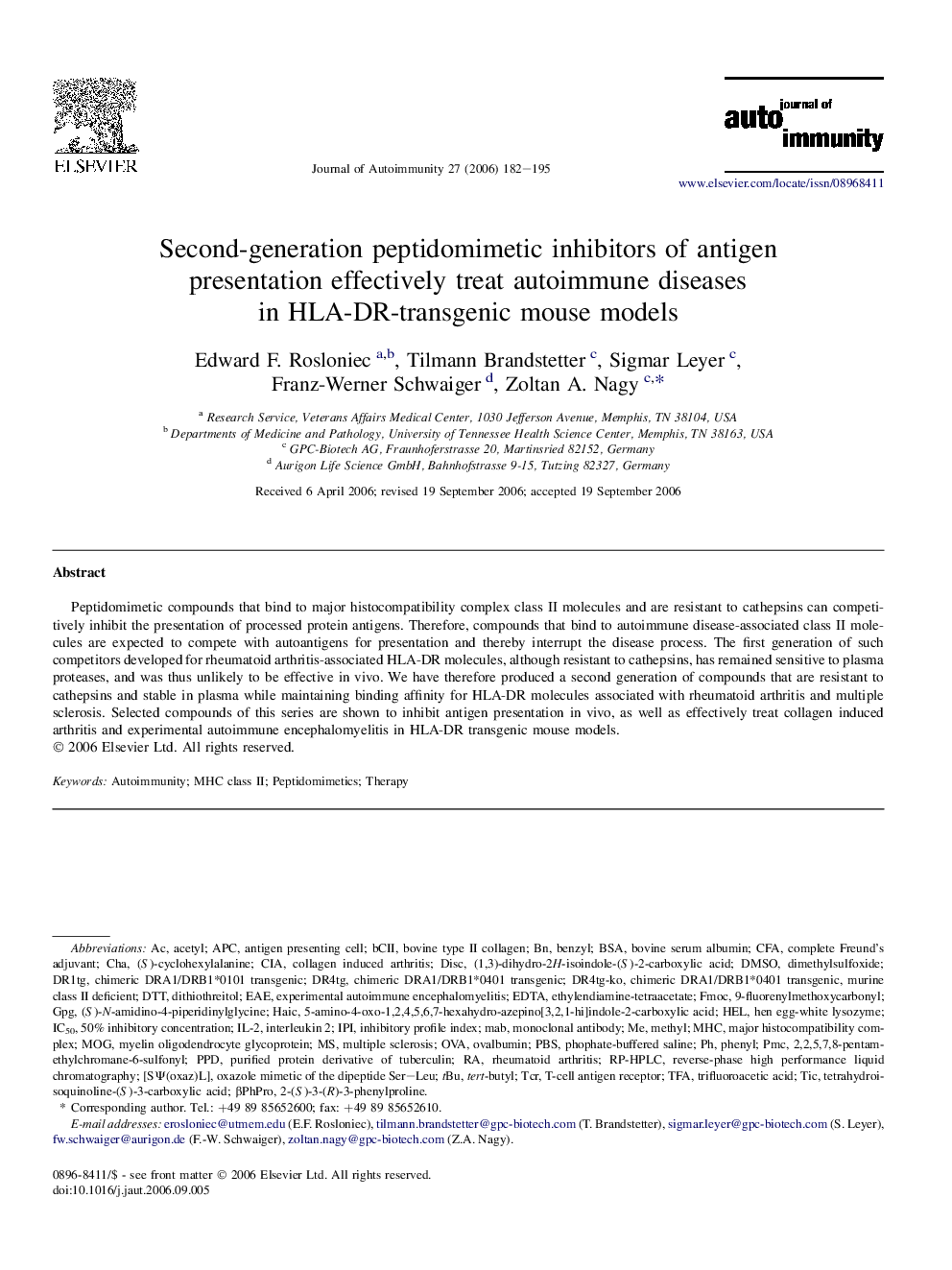| Article ID | Journal | Published Year | Pages | File Type |
|---|---|---|---|---|
| 3368556 | Journal of Autoimmunity | 2006 | 14 Pages |
Peptidomimetic compounds that bind to major histocompatibility complex class II molecules and are resistant to cathepsins can competitively inhibit the presentation of processed protein antigens. Therefore, compounds that bind to autoimmune disease-associated class II molecules are expected to compete with autoantigens for presentation and thereby interrupt the disease process. The first generation of such competitors developed for rheumatoid arthritis-associated HLA-DR molecules, although resistant to cathepsins, has remained sensitive to plasma proteases, and was thus unlikely to be effective in vivo. We have therefore produced a second generation of compounds that are resistant to cathepsins and stable in plasma while maintaining binding affinity for HLA-DR molecules associated with rheumatoid arthritis and multiple sclerosis. Selected compounds of this series are shown to inhibit antigen presentation in vivo, as well as effectively treat collagen induced arthritis and experimental autoimmune encephalomyelitis in HLA-DR transgenic mouse models.
